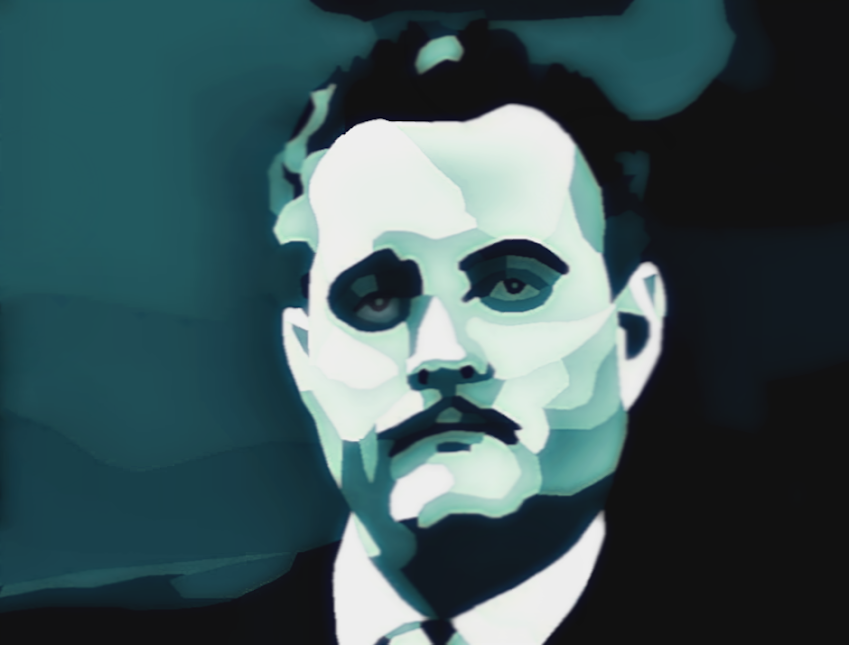 |
| Timothy Farrell delivers one of the great lines in movie history. |
One of my favorite moments in the entire Ed Wood canon occurs about 10 minutes into Glen or Glenda (1953). Some context first: Inspector Warren (Lyle Talbot) visits the office of Dr. Alton (Timothy Farrell) to try to understand why a local crossdresser, Patrick aka Patricia, committed suicide recently. The policeman thinks the doctor might have some special insight into the case after having assisted in several prominent sex changes. Alton agrees to share some knowledge with Warren, but says he must talk about two very different kinds of cases to make his point. Inspector Warren says he'd like to hear the story to the fullest.
Until now, this scene in Glen or Glenda has played like a rather dry documentary or perhaps even an educational film for bored schoolchildren. We have two somewhat dull, middle-aged white guys in suits, both authority figures—representatives of Law and Medicine, respectively—chatting politely across a desk in one of those offices with cluttered bookshelves in the background. Ed has covered this conversation in a staid, conventional manner: mostly mid-shots of actors Lyle Talbot and Timothy Farrell, with occasional two-shots of both men.
But at this point in the conversation, Eddie does something very interesting and wonderful. He punches in for a dramatic closeup of Timothy Farrell, who addresses the camera (and the viewer) with a strange intensity: "Only the infinity of the depths of a man's mind can really tell the story." Wood lingers on Farrell's unsmiling face for a few seconds and lets the shot go out of focus before cutting to stock footage of lightning, which then dissolves to a scene of Bela Lugosi as The Spirit. In a trice, we have been transported from the world of documentaries to the world of dreams.
I've often said that Glen or Glenda serves as a Rosetta Stone for the rest of Ed Wood's career, and this scene with Dr. Alton is a good example of what makes him special as a writer and director. That line—"the infinity of the depths of a man's mind"—really shows you how Eddie thought. He loved words that refer to a vast, unquantifiable expanse. Along with "infinity," Ed used "oblivion," "never," and "eternity" again and again in his writing, especially his short stories and novels. Glenda has another beautiful example when Bela mentions "the endless reaches of time." If you want to think like Ed, think big. And vague.
Some time ago, I decided to commemorate the "depths of a man's mind" scene with some fan art, and for Day 5 of my Ed-vent Calendar, I'm sharing it with you now.
 |
| Some fan art of Timothy Farrell in Glen or Glenda. |

No comments:
Post a Comment